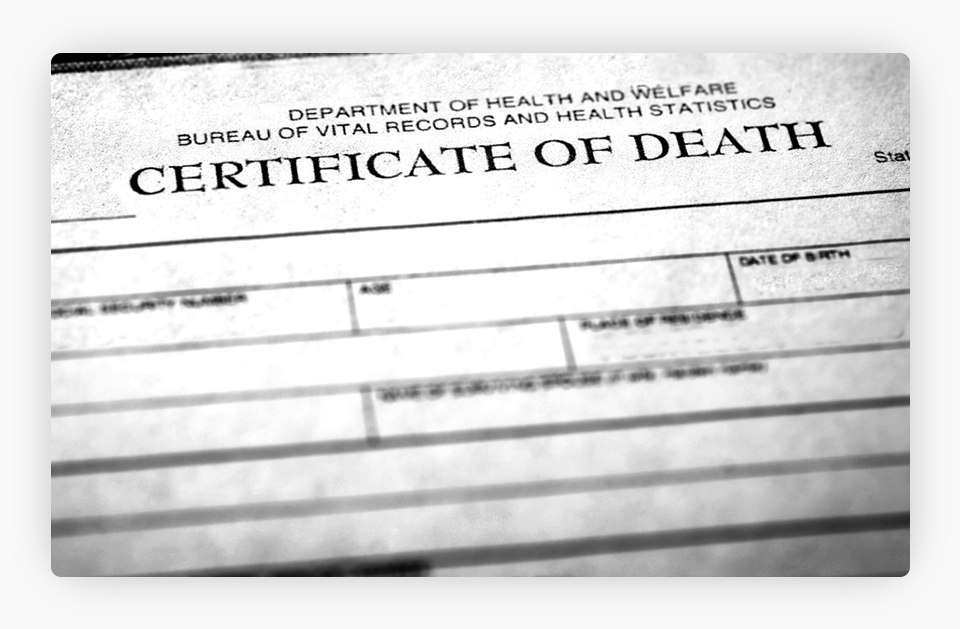We can’t send you updates from Justia Onward without your email.
Unsubscribe at any time.
Did you know Justia offers numerous free resources to make the law more accessible and help people better understand the foundations of a variety of legal areas? In this post, you can learn more about the information available in Justia’s Probate Center.
Among the many free resources that Justia provides to the public are Justia Legal Guides on dozens of diverse practice areas. In a series of posts, we will continue to explain how someone coming to our site might use each of these guides to understand their rights and options, as well as what to expect from the legal process.
This post imagines a handful of probate issues involving “Marley,” whose uncle recently passed away and named her as the executor of his estate. Marley searches for information about these topics online and finds Justia’s Probate Center.
First Steps After Death
Marley’s uncle died yesterday, and she is flying into his hometown to help with arrangements. Her uncle told her a few years ago that he named her as the executor of his estate to relieve some of the burden on his elderly wife. Marley wants to familiarize herself with the things that need to be done within a few days of his death so that she can begin to take over the process.

Marley finds Justia’s page on the first steps after death and learns that the general issues that she should address immediately are organ or body donation, the death certificate, an autopsy, and a funeral and burial. She reads that the death certificate will play an important role in helping her fulfill her executor duties, since many entities will require a copy. She thinks that her aunt might have already contacted a funeral home, so she makes a note to ask the funeral home if they will help prepare the death certificate and ensure that it is correctly signed and filed.
After reading about funerals and burials, Marley makes another note to check her uncle’s will to see if he allocated specific funds for that expense and if he expressed any funeral or burial preferences.
Becoming an Executor

Next, Marley learns about becoming an executor. She realizes that since she lives in a different state than her uncle, she will be considered an out-of-state executor and may need to meet additional requirements, such as working with an in-state agent. Marley had been so honored to be named her uncle’s executor that she never considered the time and money that she would be spending traveling to and from his home state. She finds that she can decline the role but also learns that she is entitled to reasonable compensation for her job as executor, which may offset the cost of her travel and time.
Marley also learns about an executor’s fiduciary duties. She reads that she will be responsible for the estate from beginning to end and must always act in the best interests of the estate. Considering that her family is small and that she is unaware of any tension between family members, Marley thinks that her job should go smoothly. However, she makes a mental note to explain all of her decisions to her family members and keep them updated about the process so that they have little reason to instigate probate litigation.
The Duties of an Executor
Marley then finds Justia’s page on the duties of an executor, which outlines the general responsibilities that Marley must fulfill in her role. She learns that she will be responsible for finding and organizing all of the estate’s important documents, including her uncle’s will and his death certificate. She also finds that even if the estate will not pass through probate, Marley may be required by law to file the will with the probate court. It is her job, she learns, to notify her uncle’s loved ones and any relevant agencies or entities of his death. She starts a list of people to keep regularly updated and another list of entities to inform, such as the post office.

Marley finds that a large portion of her job will be to inventory and value estate assets and manage those assets. She learns that once she has inventoried and valued the estate, she may find that it qualifies for small estate procedures or informal probate or that it may all be easily transferred outside probate. However, if the estate will go through probate, Marley learns that she must prove the will. She checks the laws of her uncle’s state by using Justia’s 50-state resource on will requirements and finds that his will is most likely valid, but she makes a note to look for other wills or codicils among her uncle’s documents. After reviewing her other responsibilities, such as paying the estate’s debts and taxes, Marley decides that she might consider hiring a professional to help her accomplish these tasks. Finally, she learns that her job will not be complete until she distributes all of the estate’s assets and the probate case is closed.
Transferring Property Outside Probate
After learning that an estate may avoid formal probate if all of its assets are transferred outside probate, Marley wonders which kinds of assets may qualify for this process. She learns that it will be important for her to determine whether certain property was owned jointly with another person, such as her uncle’s wife. She also learns that trust property, payable-on-death bank accounts and securities, income, life insurance proceeds, retirement and health savings accounts, pension plans, and sometimes even vehicles may be transferred outside probate.

However, going through a formal probate process will give creditors a hard deadline to submit claims against the estate, so Marley will decide whether to bypass formal probate proceedings only after she has reviewed all of her uncle’s debts.
Final Thoughts
Marley now has a basic understanding of some of the laws and procedures that may affect her responsibilities as the executor of her uncle’s estate. While these laws vary from state to state in some cases, and Marley still may need to consult a probate lawyer, she feels more at ease about the process. Justia’s Probate Center serves as a starting point for ordinary people going through the probate process. It aims to make the law transparent and accessible to all.